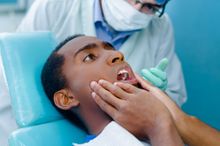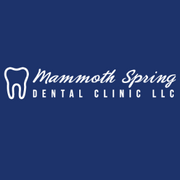Mammoth Spring Dentist Explains Dry Sockets & How They’re Treated

Imagine your dentist just said you need a tooth extraction. As they explain what to expect, including potential complications during recovery, you first hear about dry sockets. But what is this condition and how could it affect you? Mammoth Spring Dental Clinic in Arkansas explains the effects of this problem and how their general dentistry team is prepared to treat it.
Why Dry Sockets Are a Problem
 An extraction removes the tooth from its socket. A dry socket is a common side effect of the procedure and can cause severe pain in the gum and jaw on the affected side. Other side effects include bad breath and an unpleasant taste in your mouth.
An extraction removes the tooth from its socket. A dry socket is a common side effect of the procedure and can cause severe pain in the gum and jaw on the affected side. Other side effects include bad breath and an unpleasant taste in your mouth.
During the healing process, a blood clot is supposed to form within the cavity left by the extracted tooth. When a clot fails to form or becomes dislodged, it’s called a dry socket. The condition leaves inner nerves and bone exposed to air, resulting in extreme discomfort. If left untreated, a dry socket can become infected and require restorative dentistry procedures to correct.
How Dentists Treat the Condition
Fortunately, your dentist can care for a dry socket in the comfort of your local office. They first will remove food particles and clean the area with water. Next, they will seal the hole with medicated gauze or a paste to cover the exposed nerves.
You could be required to visit your dentist regularly for cleanings and dressing changes until the socket heals. You also might need to take antibiotics to prevent an infection and an over-the-counter pain medication to reduce discomfort. In some cases, such as wisdom teeth extractions, the procedure is complete once the socket heals, but other situations might call for the installation of a dental implant.
If you’re facing a tooth extraction, you can avoid a lot of pain if you understand the urgency of dry sockets. The dentist at Mammoth Spring Dental Clinic in Arkansas can remove teeth safely and deal with any problems that arise. This family dentistry practice has been serving the community since 1985, so you can trust their expertise. To schedule an oral exam, call (870) 625-3262 or contact them online. Visit them on Facebook for more tips from their team.
About the Business
(2 reviews)
Have a question? Ask the experts!
Send your question

